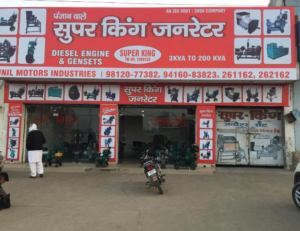Learn More About Life Insurance

Life Insurance
Life insurance is a crucial financial tool that provides security and peace of mind for individuals and their families. In India, where the importance of financial protection is recognized, understanding life insurance becomes essential. This comprehensive guide aims to demystify the world of life insurance, helping you make informed decisions and choose the right policy for your needs.
Whether you’re new to life insurance or looking to enhance your existing coverage, this article will equip you with the knowledge you need to navigate the complexities of life insurance in India.
Meaning of Life Insurance
Life insurance is a contract between an individual and an insurance company, where the insurer promises to pay a predetermined amount of money, known as the death benefit, to the policyholder’s beneficiaries upon his/her death. The primary purpose of life insurance is to provide financial protection and support to the insured’s loved ones in case of their untimely demise.
When choosing a life insurance policy, several factors need to be considered.
- First and foremost, assess your insurance needs based on your financial goals and responsibilities.
- Consider your family’s financial obligations, such as loan payments, children’s education and other debts.
- It is also essential to evaluate your budget and determine an affordable premium that you can comfortably pay over the policy term.
Types of Insurance Policies
In India, there are different types of life insurance policies available. The most common ones include term insurance, whole life insurance and endowment policies.
- Term insurance provides coverage for a specific period, typically ranging from 10 to 30 years.
- Whole life insurance, as the name suggests, covers the insured for their entire life.
- Endowment policies offer both insurance coverage and a savings component, where the policyholder receives a lump sum amount upon maturity or in case of death.
Benefits of Life Insurance
Once you understand what is life insurance and its types, it’s time to move on to the advantages. Life insurance offers several benefits that make it a valuable investment for individuals in India.
- Life insurance provides financial protection for your loved ones in case of your untimely demise. The death benefit can be used to cover daily living expenses, outstanding debts, funeral expenses and other financial obligations. It helps ensure that your family can maintain their standard of living and financial stability even after you’re no longer there to provide for them.
- Life insurance also acts as an income replacement. If the policyholder is the primary earner in the family, their sudden absence can cause significant financial hardship. The death benefit can serve as a substitute for lost income, allowing the family to continue meeting their financial needs.
- In India, life insurance policies also offer tax benefits. The premiums paid towards life insurance policies are eligible for tax deductions under Section 80C of the Income Tax Act. Additionally, the death benefit received by the beneficiaries is tax-free under Section 10(10D). These life insurance tax benefits make them an attractive option for individuals looking to save on taxes while securing their financial future.
The Claim Process
Understanding the claim process is crucial to ensure a smooth and hassle-free settlement for your beneficiaries. In the event of the policyholder’s demise, the following needs to be done:
- The beneficiaries need to initiate the claim process by contacting the insurance company.
- The insurer will provide the necessary claim forms and documentation requirements.
- It is essential to gather all the required documents, such as the death certificate, policy documents, identity proof and any other supporting documents specified by the insurance company.
- Timely submission of the claim forms and supporting documents is vital to expedite the claim settlement process.
- Once the claim is submitted, the insurance company will evaluate the documents and assess the validity of the claim.
The process typically involves verification and investigation to ensure that the claim is genuine and aligns with the policy terms and conditions. The insurance company is required to settle the claim within a specific timeframe, as prescribed by the Insurance Regulatory and Development Authority of India (IRDAI).
Selecting the Right Life Insurance Provider
Choosing the right life insurance provider is essential to ensure reliable coverage and a smooth claims settlement process. When selecting an insurance company, consider factors such as reputation, customer service and claim settlement ratio. Look for insurers with a good track record of settling claims promptly and efficiently.
Research and compare different insurance companies in India. Seek recommendations from friends, family or financial advisors who have experience with life insurance policies. Reading customer reviews and testimonials can also provide valuable insights into an insurer’s performance and customer satisfaction.
Conclusion
Life insurance is a vital component of financial planning, providing security and protection for your loved ones. By understanding the intricacies of life insurance in India, you can make informed decisions and secure a policy that meets your needs. Remember to assess your requirements, consider policy types and benefits and choose a reputable provider.
With this comprehensive guide, you now have the tools to navigate the world of life insurance confidently. Protect your loved ones and secure their future by taking the necessary steps to acquire the right life insurance coverage today.










